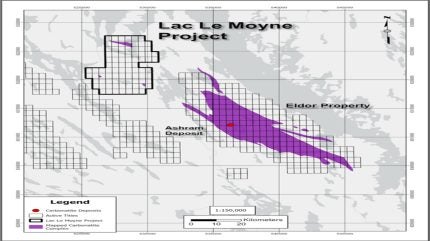Sign up for daily news updates from CleanTechnica on email. Or follow us on Google News!
As the Democratic Party’s nominee for President, US Vice President Kamala Harris can have a much more important role — outlining how the next four years can be a time to heighten climate action at the US federal level. Except she isn’t actually doing much of that, is she? Instead, her team has calculated that the best course is to stay low, promote US oil and gas production, and praise the merits of fracking. She dare not mention the shadow effects of burning fossil fuels — like polluted water and air, biodiversity loss, extreme weather, and ocean acidification.
Another Trump administration would revise nearly every forward-looking Biden-Harris administration action, including breakthrough legislation to mitigate the effects of the climate crisis. The Sierra Club warns that “everything from rules to curb hazardous air pollutants to programs that help make cleaner and more energy-efficient purchases affordable would be on the chopping block” if Trump 2.0 becomes a reality. Trump’s campaign stump words are constantly foreboding in its negligence to the existential crisis of our lifetimes.
We are seeing before us a deep disconnect between fossil fuel-producing countries’ commitments to continued production and their Paris agreements for a 1.5°C emissions goal.
Do we really think that Harris is a fossil fuel advocate? No, not really. After all, during her 2019 Presidential bid, she embraced a Green New Deal, and she championed a quick transition to a clean energy economy. Yet her campaign website this time around is vague on climate policy details.
Trump has made clear in his campaign that he supports a significant shift in US energy policy, with fossil fuels as its backbone, alongside more regulatory dismantling and quick reductions in Inflation Reduction Act clean energy programs. But his Mar-a-Lago estate in Palm Beach, Florida, comprises twenty or so acres flanked by the Intracoastal Waterway and the Atlantic Ocean — in truth, he really doesn’t want to experience sea level rise or a hurricane landfall at home.
No, even if in different degrees, all the Presidential and Vice Presidential candidates this year are either promoting or avoiding the wrath of the fossil fuel industry. It’s because of the control that Big Oil has over US politics, of course.
The fossil fuel industry has given more money than ever — $54.2 million, to be exact — this election cycle to the two super PACs tied to the leaders of the Republican caucuses in the House and Senate, according to a newly released report from Sludge. Big Oil’s insidious influence on politics bears no resemblance to any other finite resource. Dependence on fossil fuels both as feedstock and a source of energy and is at the heart of the intertwined global crises relating to plastics, climate, and toxic emissions.
As Bloomberg explains, the cold hard fact is that the US government has far less control over its oil companies than its peers in Saudi Arabia, Russia, and other major oil-producing countries, where state bureaucrats make the decision to turn spigots on or off. The Biden-Harris administration chose to “incentivize and promote rather than tax and penalize,” says Kenneth Medlock, senior director of Rice University’s Center for Energy Studies. The Biden-Harris administration’s decision in January to pause approvals for new liquefied natural gas export terminals is “political signaling” that will likely be walked back after the election, Medlock says.
Can We Eliminate Fossil Fuels Soon? Not If The US Presidential Election Is Any Indication
While fossil fuel subsidy reform can help reduce global GHG emissions and tackle climate change by improving fuel efficiency, it is only one tool in the carbon emissions reduction toolkit. But are politicians vying for office this year even listening?
The debate between Minnesota Governor Tim Walz (D) and Senator JD Vance (R) earlier this month included a section of questioning on climate positions and policies. The questions were directly related to the devastating aftermath of Hurricane Helene, which left a path of anguish and devastation across six states. The death toll is calculated around 220 people.
O’Donnell noted that the scientific community concurs that climate change accentuates the power of such hurricanes, increasing their strength, size, and deadly force. “Senator Vance, according to CBS News polling, seven in ten Americans and more than 60% of Republicans under the age of 45 favor the US taking steps to try and reduce climate change,” O’Donnell said. “Senator, what responsibility would the Trump administration have to try and reduce the impact of climate change?”
Vance responded with his condolences for the victims of Hurricane Helene but cast doubt on “this idea that carbon emissions drives [sic] all the climate change.”
Walz went on to criticize Trump for his assurance that, if elected, he would offer the oil and gas industry unlimited access — as long as they donated a billion dollars to his campaign. (That declaration is the subject of a current Senate investigation.)
“Donald Trump called it a hoax and then joked that these things would make more beachfront property to be able to invest in,” Walz reminded the audience watchers. “To call it a hoax and to take the oil company executives to Mar-a-Lago, say, ‘Give me money for my campaign and I’ll let you do whatever you want’ — we can be smarter about that.”
After the debate, the Sunrise Movement supported the way that CBS moderator Norah O’Donnell framed the issue, describing the narrative as perhaps “the best climate questions ever in a presidential or vice presidential debate.” They also called Vance’s answer “utter nonsense” that made “clear that a Trump-Vance administration would do nothing to stop the climate crisis and prevent more disasters like Helene because they don’t want to upset their fossil fuel billionaire donors.”
Stevie O’Hanlon, communications director for Sunrise, commended Walz’ “winning message” about Trump’s duplicity with Big Oil. “This is the kind of message Harris and Walz need to repeat going into November to turn out young voters.” Not every climate action group was on board with Walz’ climate position, however, especially his pride in confirming that the US is currently “producing more natural gas and more oil at any time than we ever have” while “also producing more clean energy.”
Oil Change US argued that Walz’ “all-of-the-above” energy policy platform continues to promote fossil fuel-generated climate pollution. As reported by Common Dreams, Oil Change US campaign manager Collin Rees argues,
“We can’t solar-panel our way out of this crisis while continuing to drill and frack. Today’s catastrophes demand bold, uncompromising leadership. Tim Walz and Kamala Harris must step up to halt fossil fuel expansion, champion clean energy, and advance a just phaseout of oil, gas, and coal to protect our communities from escalating climate impacts.”
Final Thoughts
US politics does not need to be indebted to fossil fuels and their impacts on society. Through collective and enduring modes of participatory governance, decisions around carbon emissions and societal needs can be made in a way that allows impacted workers and communities to respond appropriately to inevitable trade-offs and unforeseen consequences.
Research about the democratic governance of fossil fuels decline indicates that by recognizing the injustices of market-based allocation of fossil fuel stocks and the viability of democratic models of governance, society can improve its capacity to re-imagine, experiment, and implement necessary alternatives for an energy transition that is just, equitable, reparative, and sustainable.
Hopefully, that vision for an equitable, clean energy future can become a reality over the next four — or even eight — years.

Chip in a few dollars a month to help support independent cleantech coverage that helps to accelerate the cleantech revolution!
Have a tip for CleanTechnica? Want to advertise? Want to suggest a guest for our CleanTech Talk podcast? Contact us here.
CleanTechnica uses affiliate links. See our policy here.
CleanTechnica’s Comment Policy




